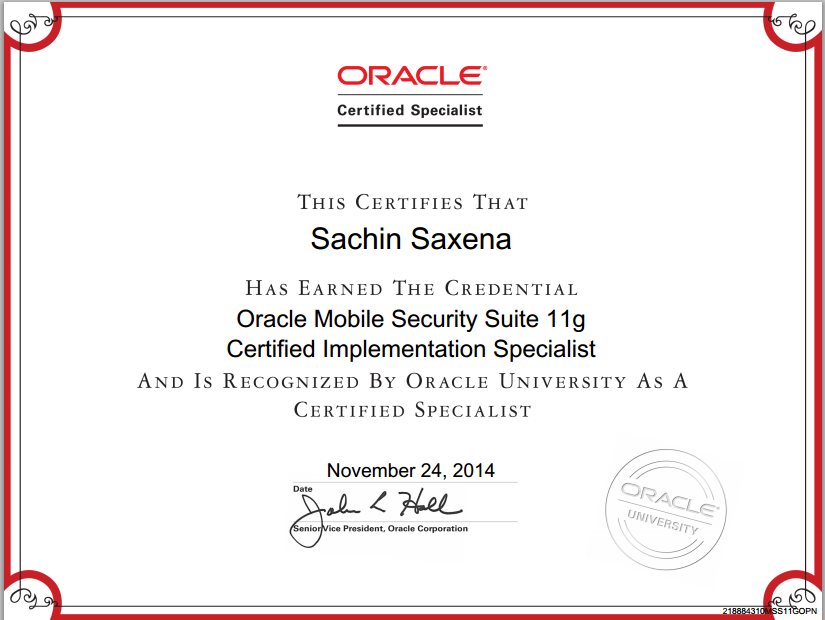I am glad to share that I passed the Oracle Mobile Security Suite(OMSS) 11g Essentials Exam. OMSS leverages the technology acquired from the acquisition of Bitzer Mobile. It's a new Mobile Application Management(MAM) solution that comes with many cool features like App Containerization and simplify enterprise mobility. This is going to address BYOD(Bring your own device) initiative that many corporate started following and many more to join.
When I started preparing for exam, I didn't find much documentation other than the Oracle documents. To pass in the exam, just going through the Oracle documentation is enough. Most of the questions are straight forward and directly from the documents. Unlike Oracle other exams, none of the questions asked based on real implementation experience.
Some Useful Links -
OMSS Documentation - http://docs.oracle.com/cd/E52357_01/index.htm
Oracle Webcast - http://medianetwork.oracle.com/video/player/3442504861001
Blogs - http://ptotech.blogspot.com/2014/05/oracle-mobile-and-security-suite-omss.html
When I started preparing for exam, I didn't find much documentation other than the Oracle documents. To pass in the exam, just going through the Oracle documentation is enough. Most of the questions are straight forward and directly from the documents. Unlike Oracle other exams, none of the questions asked based on real implementation experience.
Some Useful Links -
OMSS Documentation - http://docs.oracle.com/cd/E52357_01/index.htm
Oracle Webcast - http://medianetwork.oracle.com/video/player/3442504861001
Blogs - http://ptotech.blogspot.com/2014/05/oracle-mobile-and-security-suite-omss.html




